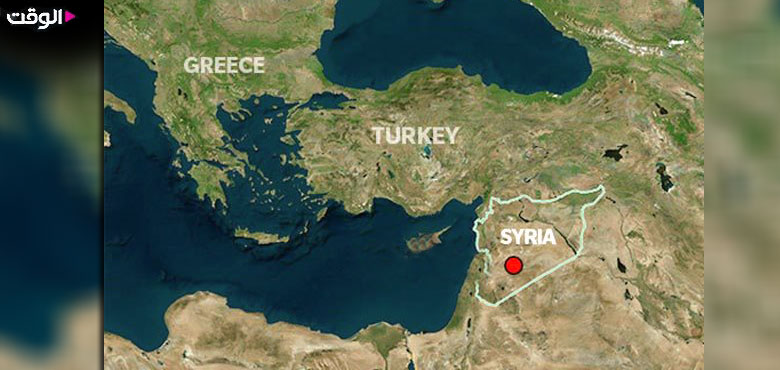Alwaght- On Tuesday, Greece foreign ministry said that it is sending a special envoy to Syria soon to discuss with Damascus re-establishing bilateral relations.
A statement published by the foreign ministry said that Ambassador Tasia Athanassiou was appointed as the Special Envoy for the Greek Foreign Ministry on Syrian issues.
The ministry further stated that his mission will focus on international issues, humanitarian actions, and also coordination as part of efforts to reconstruct Syria.
The ministry also explained that Athanassiou was Greece’s ambassador to Damascus from 2009 to 2012 when she oversaw the suspension of diplomatic mission there.
This issue is important from two aspects: First, Greece as one of the neighbors of Turkey with historical disputes with Ankara has made such a decision while the Syrian ground developments are in the most sensitive juncture. Second, Greece is one of the European Union members and its independent decision regarding Syria deserves attention. All in all, the Greek decision to send a special envoy to Damascus is of extraordinary importance.
Taking avenge on Turkey for the refugee crisis
The plan to reopen the embassy in Damascus more than anything should be regarded as revenge against Turkey which over the past few months unleashed large numbers of refugees to the Greek border. After the tensions escalated in Syria’s Idlib, Turkish President Recep Tayyip Erdogan opened the doors to the Greek borders for the refugees and migrants coming from northern Syria and even other countries in a bid to put strains on the European leaders. The move caused a serious crisis for the Athens government and the police forces, making the government of Prime Minister Kyriakos Mitsotakis a target of heavy waves of criticism at home for handling the refugees' case.
Currently, the Greek government’s putting up a happy face to the Syrian government should be read as a symbolic political stance to show its opposition to the Turkish policies in Syria. Furthermore, Athens wants to prevent a new wave of refugee crisis. The country over the past years of the Syrian crisis has suffered enough from influxes of refugees seeking passage to Europe as the country is viewed as Europe’s gate. So, it seems that Greece seeks to pressure Turkey by siding with Saudi Arabia and other Arab countries rivaling Turkey in Syria.
This can make the Syrian scale heavier in the political equations especially as Damascus made military triumphs against the foreign-backed terrorists. The Syrian importance can be bigger as Damascus appears to be returning to the Arab League and may join the League’s leaders-level meeting in Algeria. Abu Dhabi Crown Prince Mohammad bin Zayed Al Nahyan in a phone conversation in late March with the Syrian President Bashar al-Assad broke the Arab boycott against Damascus, signaling that the ending the suspension of Syria in the Arab bloc is imminent.
Division in EU unity and strategic alliance
The promising move by Greece to restore relations with the Syrian government after several years of boycotting Damascus following a collective decision by the Western governments demonstrates a deepening division among the European countries. The decision by Athens to send its envoy to Syria and reopen the embassy in Damascus comes while the EU still insists on maintaining the anti-Syrian pressures and sets up hurdles ahead of the return of the Syrian refugees. In fact, the European bloc is yet to quit its policy of hostility against the legitimate Syrian government led by President Assad.
In such a situation, Greece ignores the bloc’s major policies to de-escalate the tensions with Damascus and re-establish diplomatic relations with it. This means that the country is dissatisfied with the type of EU policy in the confrontation of the refugees pouring towards its borders and also EU’s dissatisfactory economic aids to Athens when the country struggled with the economic crisis.
Moreover, just unlike in the past, the EU is no longer a united body in taking common decisions. In the case of relations with China too, the alliance is experiencing disarray.
Tensions with Ankara over gas reserves in the Mediterranean
Another drive behind the Greek government’s decision is the differences with Turkey over the gas reserves in the Mediterranean Sea. Estimations on the Eastern Mediterranean gas reserves suggest that the Aphrodite gas field off the southern coast of Cyprus has 8 thousand billion cubic meter of gas reserve. Tamar and Leviathan gas reserves off the Israeli coasts have respectively 11 and 22 billion cubic meters of gas reserves. Dhahar gas field off the Egyptian coast has about 30 thousand billion cubic meters of gas reserve. But assessments by the US Geological Survey suggest that the amount of undiscovered gas in the Mediterranean Sea is larger than the announced figures. The USGS suggests that a total of about 350 thousand billion cubic meters of gas reserves exist in the region.
Erdogan argues that only Turkey can explore and produce gas from a major part of the Mediterranean gas reserves. He refers to an agreement on energy resources with Libya signed in December. According to a pact with Libya, Turkey can explore gas and oil and produce them in the Libyan territorial waters in accordance with international laws.
But this pact met opposition from other coastal nations. Turkey defends the pact and asserts that others have no such agreements and so cannot produce gas from Eastern Mediterranean. He said that specifically the Greek Cyprus, Egypt, and Greece, and the Israeli regime cannot install energy facilities in the sea without authorization from Ankara.
The Greek government strongly opposes this stance by the Turkish government. It says it will never accept these conditions regarding the gas resources of the Mediterranean. These stances, the Greek leaders think, need to be accompanied by actions. So, closeness to the regional rivals of Turkey like Syria can be part of this action. In February, the Greek PM visited Saudi Arabia to coordinate a response with another regional rival of Turkey.



























